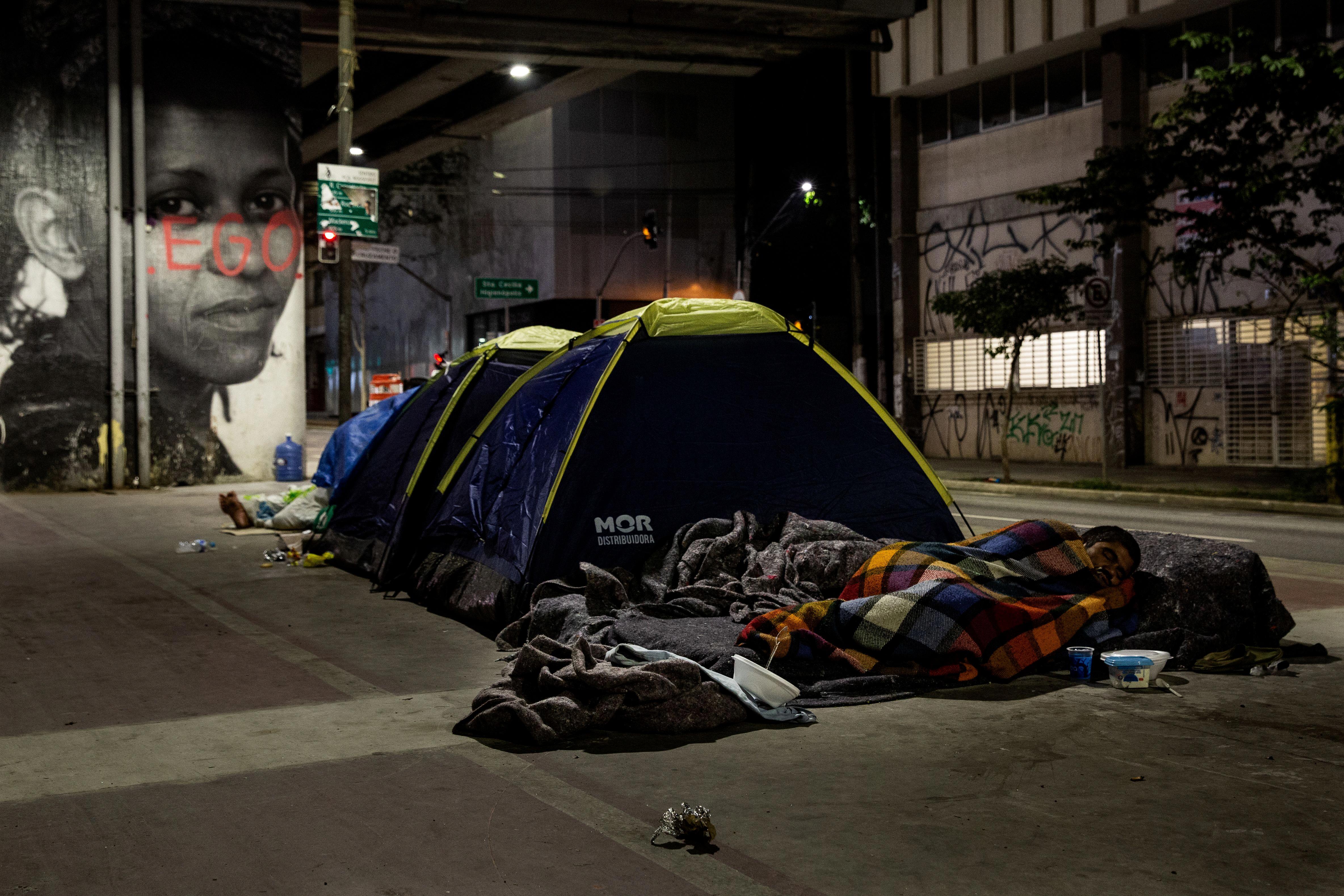When discussing the issue of people without a fixed residence, there are various terms that can be used to describe them. For years, the standard term has been “homeless,” but more recently, there has been a shift towards using the term “unhoused” or “houseless.”
While the term “homeless” has been widely used in mainstream discourse and official statements, activists and housing advocates have pointed out that the word has negative connotations. It implies that individuals without a home are entirely defined by their lack of housing, when in fact they are multi-faceted individuals with a range of experiences and identities.
On the other hand, using the term “unhoused” or “houseless” places emphasis on the fact that thse individuals are without a physical residence, rather than defining them by this lack. It also acknowledges that being without a home is not a permanent state, and that these individuals may have previously had a home or may find a home in the future.
Another benefit of using terms like “unhoused” or “houseless” is that they tend to have more positive connotations. Referring to people as “unhoused neighbors” or “houseless individuals” acknowledges their humanity and emphasizes the fact that they are part of a community.
It’s important to note, however, that language is just one small part of the larger issue of homelessness (or unhousedness). Ultimately, what’s most important is taking action to address the root causes of homelessness, such as lack of affordable housing, mental health and addiction issues, and systemic inequality.
While the term “homeless” has been the standard for years, there is value in shifting towards terms like “unhoused” or “houseless” that emphasize the fact that individuals without a home are more than just their lack of housing. However, it’s important to remember that language is just one piece of the puzzle when it comes to addressing the issue of homelessness.
Is It Politically Correct To Say Homeless?
It is generally considered politically correct to say “homeless” when referring to people who do not have a fixed place of residence. However, it is important to avoid using the term “the homeless” as it can be dehumanizing and stigmatizing. Instead, it is recommended to use phrases such as “people without homes,” “people without housing,” or simply “homeless people.” It is also important to note that mentioning a person’s homelessness should only be done if it is relevant to the conversation or information being presented.

What Does Unhoused People Mean?
Unhoused people are individuals who do not have a permanent dwelling place or shelter to reside in. They may be forced to live on the streets, in temporary shelters, or in other unsuitable conditions. Unhoused people may face a range of challenges, including difficulties accessing basic necessities such as food, water, and healthcare, as well as increased vulnerability to violence, illness, and other dangers. The term “unhoused” is often used as an alternative to “homeless” to highlight the lack of a stable, secure living situation rather than a lack of a physical home.
Why Use The Word Unhoused?
The term ‘unhoused’ is often used insted of ‘homeless’ to provide a more positive connotation. Using ‘unhoused’ implies that the individual or group is without a home or shelter, but it does not define them by their situation. It is a more respectful and dignified way of referring to individuals or groups who are experiencing homelessness. By using this term, we can help to reduce the stigma and discrimination that is often associated with the word ‘homeless.’ Additionally, using ‘unhoused’ acknowledges that homelessness is a temporary condition that can be remedied, rather than a permanent state of being. using ‘unhoused’ helps to promote a more compassionate and understanding approach towards those who are experiencing housing insecurity.
What Is The Correct Term For Homeless Person?
The term for a person who does not have a permanent residence and lacks a fixed, regular, and adequate nighttime residence is traditionally referred to as homeless. This term has been commonly used in mainstream discourse and by government agencies for years. However, in recent years, advocates and activists have started using the term unhoused or houseless to describe individuals who are without a permanent residence. The term unhoused or houseless is preferred by advocates becuse it emphasizes the lack of housing as the problem rather than defining the person by their lack of a home. While the term homeless is still widely used, it is important to be aware of the language we use and the impact it can have on how we view and treat individuals who are experiencing homelessness.
Conclusion
The use of language is important in how we talk about individuals who do not have a fixed residence. While the term “homeless” has been the standard for years in mainstream discourse, there is a growing movement to use terms like “unhoused” or “houseless” to describe this population. These terms are seen as more positive and person-centered, emphasizing the humanity of individuals who are experiencing homelessness. It is important to be mindful of the language we use and to aways prioritize the dignity and respect of those we are referring to. Ultimately, the goal is to create a society where everyone has access to safe and stable housing.
